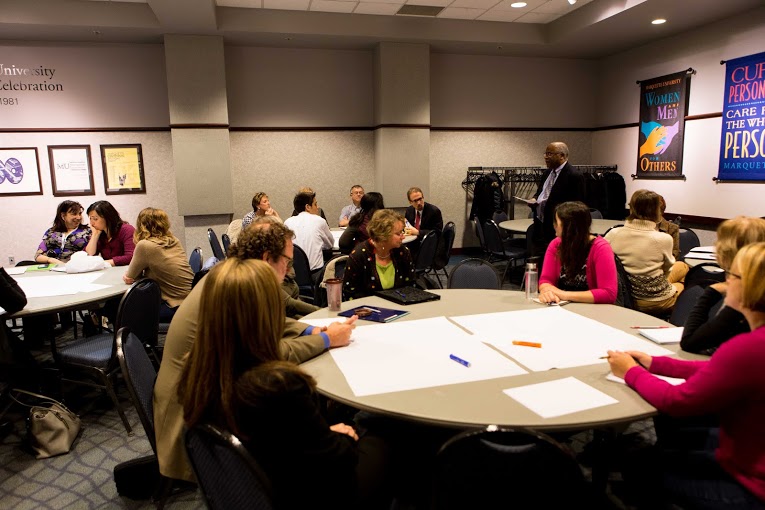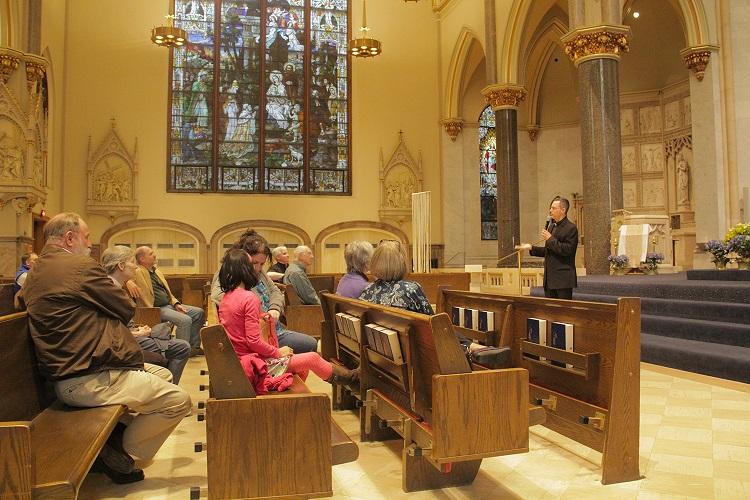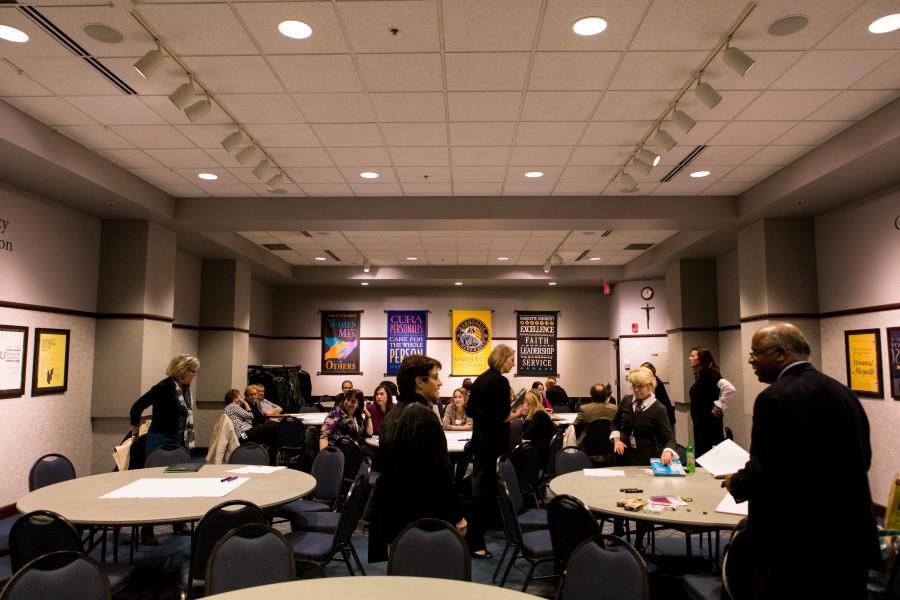The Climate Study Work Group hosted two open roundtable forums Tuesday and Wednesday so faculty, students and staff could gather to share their thoughts on the climate study results.
The CSWG helped monitor discussions and established the forum as groups of nine people at each table. Attendance at the first forum was estimated at 36 faculty and staff and three students. The second forum had approximately 25 staff and faculty and four students.
“We had good attendance, but we do have some other sessions where we have invited students in for discussion, so those will happen as well,” said William Welburn, associate provost for diversity and inclusion who was the head facilitator for both forums. “They are basically split up by different demographics, gender, gender-identity, race. Generally, we were very satisfied with the first forum.”
When groups discussed the results of the study, there were several recurring themes, including a desire for faculty and staff resources in diversity training as well as the desire to see more diversity consideration in the hiring process. Additionally, some faculty expressed they feel a lack of support. While there are resources for students of diverse backgrounds like the Center for Intercultural Engagement, there are no support departments for faculty and staff members.
Students suggested that an expansion of diversity learning-living communities could create a more positive campus climate.
“I wasn’t super surprised by the results of the climate study,” a junior in the College of Arts & Sciences who attended the forum, Maggie Stang, said in an email. “I knew that people felt excluded, but now we have the numbers to back that and we can move towards action.”
Faculty and staff expressed a desire to have more diversity classes taught by more professors, as opposed to several classes taught by one or two professors. Stang said this was a topic her group discussed.
“If you feel comfortable at Marquette and you want to advocate for those who don’t, you need to learn how to do that effectively,” Stang said. “In addition, we felt there should be a safe space for people to share their experiences and stories.”
A consistent topic of conversation among participants was the allocation of funds across different initiatives regarding diversity. One written concern was that an increase in diversity would be a challenge because of current budget constraints.
“We will look for the responses that rise to the top, and we will compile a report with the top three items which we will in turn pass to senior leadership to be acted upon,” Welburn said.






